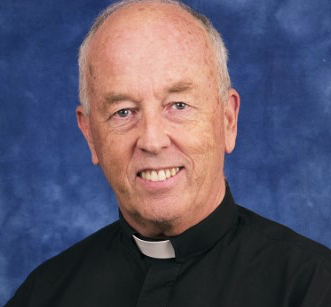 In The Encounter Space (Ephesians 2; Luke 6) Fr. Tom McKenna offers this reflection on the space where encounter takes place.
In The Encounter Space (Ephesians 2; Luke 6) Fr. Tom McKenna offers this reflection on the space where encounter takes place.
Judging from some of Paul’s favorite imagery, he would have lined up closely behind one of Pope Francis’ favorite metaphors, “encounter,” specifically places of encounter. The Pope constantly speaks about the task of building those safe and welcoming spaces in which people can come home to their real and best selves, can commune with each other, and can meet and speak with their God. A word Paul uses for this same thing appears in Ephesians (2:22 ) where he describes a “dwelling place,” the abode of God and God’s people. Paul pictures a house (a home) inside of which people can meet each other and be with their God both at the same time. It’s a place of mutual indwelling, a locus of encounter.
Like images are all through the Scriptures: the burning bush and the lighted space all around it, the glowing ark of the covenant, the holy of holies behind the Temple veil. This is God’s place, where God dwells and into which space God welcomes and nourishes God’s people and they one another.
And of course, the dwelling place is Jesus himself. He is the itinerant ark of the covenant, the traveling new temple. When you step into his personal space, you’re not just meeting a very dedicated and religious individual, but you’re actually standing in “the God space.” Entering into his life is arriving at the site of encounter, the dwelling place of God, the divine milieu.
It might seem a strange question to ask but how is it that Jesus “gets into,” and “operates out of” that space? And his insertion there so brimming over that whenever he speaks or acts, his heavenly Father is also speaking and acting (“Whoever hears me, hears the One who sent me.”)?
There are many answers to this, some of them phrased in fairly technical theological language (e.g., “Created actuation by uncreated Act!”) But a direct and accurate one is given in the sixth chapter of Luke (6:2). Before Jesus makes his vital choice of the Twelve, Luke tells us “he went up to the mountain to pray.” And up there, things come together. The things:
- Up the mountain: to go to “the place where” the religious person communes with God, to the heavenly house, court, throne room, dwelling.
- Pray: to enter into/step inside the place, to get into the conversation going on there, to feel the influences pulsing through that opening.
- Choose: to stand at the crossroads of a decision, and in that space to listen for the Father’s voice.
We see the Lukan Jesus coming into this very prayer place before all the critical decision points of his ministry; his baptism, choice of the twelve, Peter’s confession, the Transfiguration, when asked to learn how to pray, on the Mount of Olives, and on the cross.
Put into the Pope’s imagery, the mountain is the encounter spot. It is that “safety zone” inside of which Jesus’ communication with his Father goes on. It is the place of mutual indwelling into which Jesus steps. And it is in there and from there that he operates – and discerns. And it is into that very spot he invites the disciples.
Can we look at this incident as Jesus modeling where to go when faced with decisions? Step into the “dwelling place,” set up camp inside this encounter space, step up to the burning bush. In doing it, you’ll be there “with” Jesus as he converses with his Father. You’ll be there “in” Him (inside his own awareness) as he listens. You’ll be doing things “through” him, your decisions now filtered through his window on the world.
These three prepositions — through, with, and in, — surely ring a bell for the worshipper. They conclude the Eucharistic prayer
We disciples try to get on the inside of these words. We would step inside that dwelling place, move into the circle of that encounter space. And isn’t this a packed description of what we try to do all the time in prayer: come onto the home ground of God and God’s people – and there listen for the voice of the Spirit who in that place of encounter speaks the Word to us.





Good Job—thanks for making this wonderful homily available to us, Fr Tom!